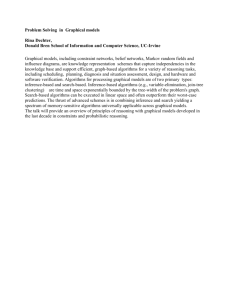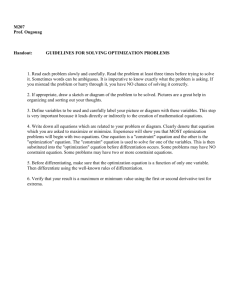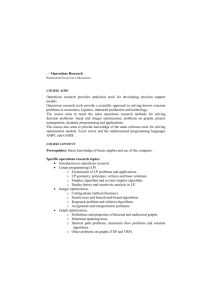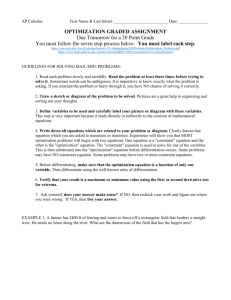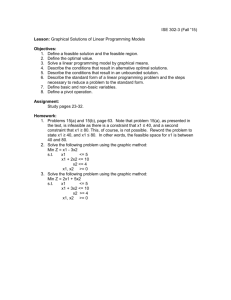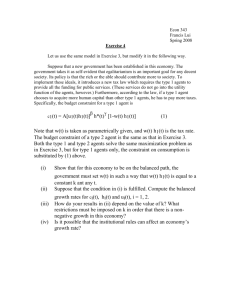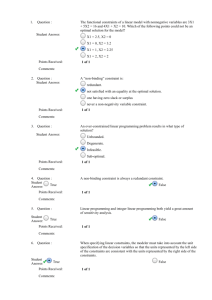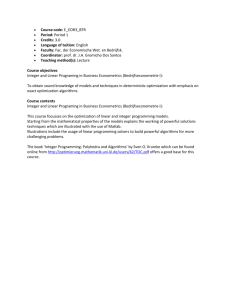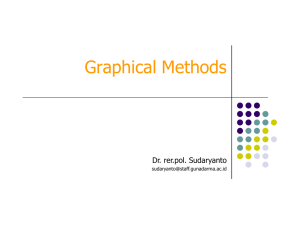abstract-ecai2010-tutorial - University of California, Irvine
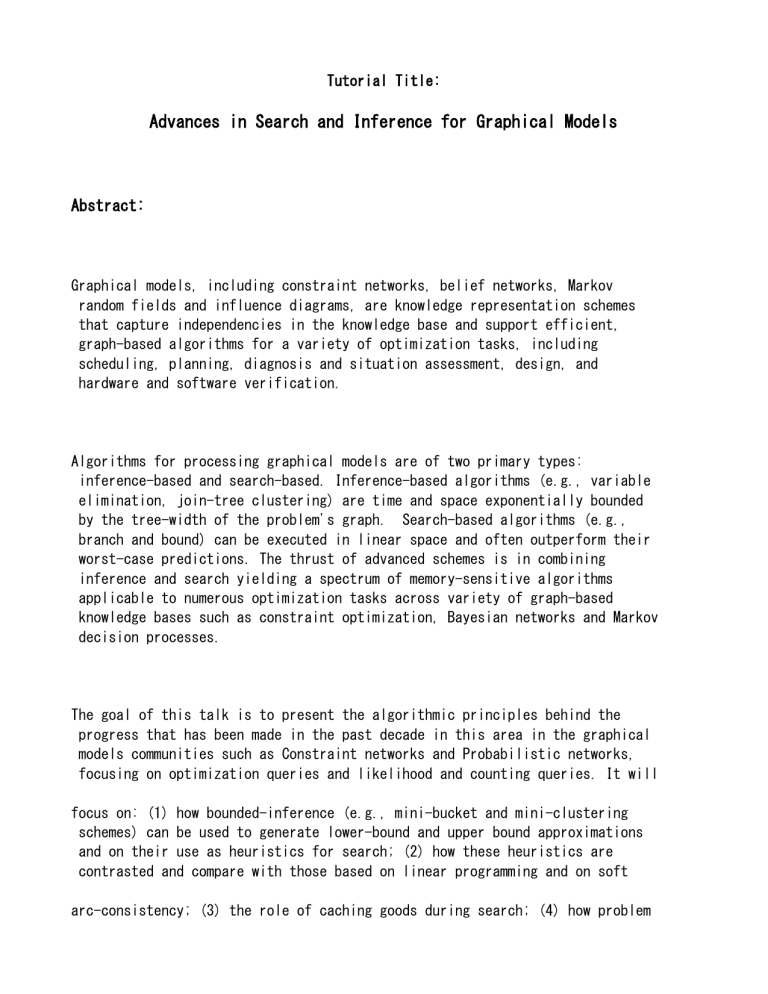
Tutorial Title:
Advances in Search and Inference for Graphical Models
Abstract:
Graphical models, including constraint networks, belief networks, Markov
random fields and influence diagrams, are knowledge representation schemes
that capture independencies in the knowledge base and support efficient,
graph-based algorithms for a variety of optimization tasks, including
scheduling, planning, diagnosis and situation assessment, design, and
hardware and software verification.
Algorithms for processing graphical models are of two primary types:
inference-based and search-based. Inference-based algorithms (e.g., variable
elimination, join-tree clustering) are time and space exponentially bounded
by the tree-width of the problem's graph. Search-based algorithms (e.g.,
branch and bound) can be executed in linear space and often outperform their
worst-case predictions. The thrust of advanced schemes is in combining
inference and search yielding a spectrum of memory-sensitive algorithms
applicable to numerous optimization tasks across variety of graph-based
knowledge bases such as constraint optimization, Bayesian networks and Markov
decision processes.
The goal of this talk is to present the algorithmic principles behind the
progress that has been made in the past decade in this area in the graphical
models communities such as Constraint networks and Probabilistic networks,
focusing on optimization queries and likelihood and counting queries. It will focus on: (1) how bounded-inference (e.g., mini-bucket and mini-clustering
schemes) can be used to generate lower-bound and upper bound approximations
and on their use as heuristics for search; (2) how these heuristics are
contrasted and compare with those based on linear programming and on soft arc-consistency; (3) the role of caching goods during search; (4) how problem
decomposition can be incorporated into search using AND/OR search spaces; (5)
how problem structure can be exploited to yield more efficient compilation
schemes for probabilistic inference and post-optimality analysis. All these
enhancements yield a new generation of search algorithms (e.g., branch and
bound or best-first search) that can trade-off time and space using a few
controlling parameters.
Complexity analysis and empirical demonstration of all algorithms will be
presented on variety of benchmarks for Max-CSP, for the Most Probable
Explanation (MPE) task for probabilistic reasoning, for Integer Programming
and for general constraint optimization tasks. Example benchmarks include radio-frequency problems, linkage analysis, combinatorial auctions, and
coding networks.
Bios:
Rina Dechter is a professor of Computer Science at the University of California,
Irvine. She received her PhD in Computer Science at UCLA in 1985, an MS degree in
Applied Mathematic from the Weizmann Institute and a B.S in Mathematics and
Statistics from the Hebrew University, Jerusalem. Her research centers on computational aspects of automated reasoning and knowledge representation including search, constraint processing and probabilistic reasoning.
Professor Dechter is an author of Constraint Processing published by Morgan
Kaufmann, 2003, has authored over 100 research papers, and has served on the editorial boards of: Artificial Intelligence, the Constraint Journal, Journal of
Artificial Intelligence Research and Logical Method in Computer Science (LMCS). She was awarded the Presidential Young investigator award in 1991, is a fellow of the
American association of Artificial Intelligence since 1994, was a Radcliffe
Fellowship 2005-2006 and received the 2007 Association of Constraint Programming
(ACP) research excellence award.
Robert Mateescu is a postdoc researcher at Microsoft Research
Cambridge UK. He received his PhD and MS degrees in Information and Computer
Science (in 2007 and 2003) from the University of California Irvine,
advised by Professor Rina Dechter. Between 2007-2009 he was a postdoc at
Caltech, hosted by Professor Jehoshua Bruck. His current research is
focused on efficiently solving very large scale optimization problems, and in
particular SAT solving. Some of the topics of the past work
include AND/OR search for graphical models, message-passing algorithms, compilation schemes for graphical models, data representation and coding for flash memory.
Radu Marinescu is a postdoctoral scholar at the Cork Constraint
Computation Centre (4C), University College Cork, Ireland working with
Professor Eugene Freuder. He received his PhD and MS degrees in
Computer Science from the University of California Irvine (in 2004 and
2008, respectively) working with Professor Rina Dechter. His research
focuses on
automated reasoning with emphasis on high performance methods
exploiting AND/OR search spaces for solving optimization tasks in
probabilistic and deterministic graphical models. His recent interests
are centered on decision analysis and multi-objective optimization. He
co-authored papers appearing in the AIJ, JAIR, AAAI, IJCAI, UAI, CP and CPAIOR.
